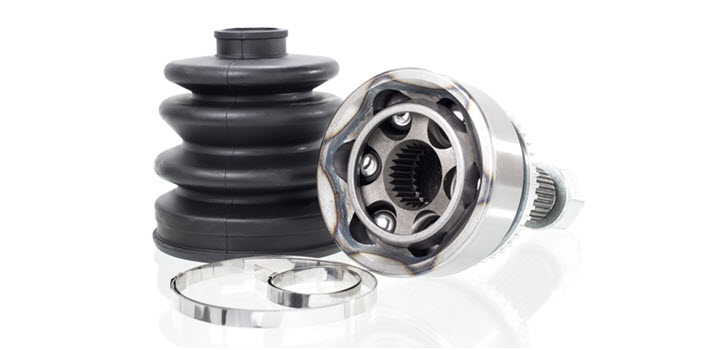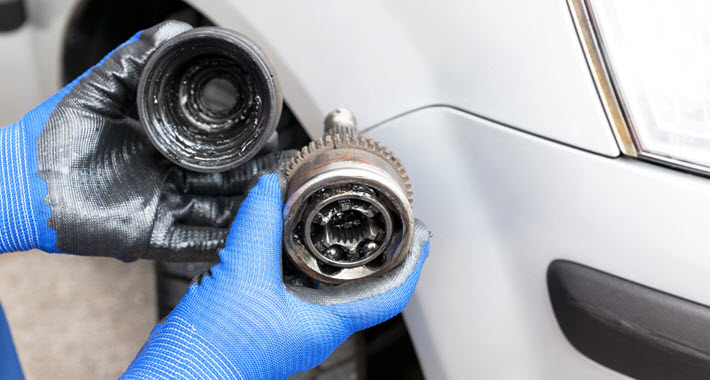-
Call Today:
(972) 418-1800
A car is only as good as the service that goes into it and the effort that is directed towards maintaining all its different components. All cars, regardless of make and model, are prone to develop a myriad of issues over time. Some cars experience these problems much earlier than others, subject to the quality of manufacturing as well as driving. The only way to improve the longevity and quality of service that your car will render to you is through proper servicing and replacement of worn out parts. The CV joint in your car, for instance, will require replacement after covering extensive miles.

The Constant Velocity joint, or CV joint as it is commonly referred to, is a small part of the transmission system located mostly in front wheel drive vehicle models. It is the part that enables power to be transmitted through different angles by the drive shaft. This does it in a way that ensures there is minimal friction increase while the rotational speed remains constant.
The CV joint is usually covered by a rubber boot that often requires lubrication to ensure that friction is eliminated as much as possible. For this reason, fault in the CV joint can have devastating effects on your driving experience.
Because they are protected by a rubber boot, the CV joint is one of those car parts that is more prone to damage much faster than the manufacturer may have anticipated. This is because the rubber boot will most likely expand and contract frequently. This will trigger the development of cracks, which will then cause the lubricating fluid to leak. This will cause an increase in friction that will further damage the already exposed joint.
In addition to increased friction, the rubber boot usually becomes brittle over time, causing it to start chipping off. This will also have the same leaking effect on the CV joint and alter its efficiency. The rubber boots may also become loose over time and after covering a number of hundred thousand miles.
Another common cause of CV joint failure is the contamination of the joint by substances such as rust. Rusting in the CV joint is normally caused by moisture that may find its way into a compromised rubber boot.
Some of the most common effects that a faulty CV joint will have on your car include:
Increased vibrations: These will be even more pronounced when accelerating. This is because there will be excessive play between the input and output shafts that would normally be eliminated by the CV joint. These vibrations are sometimes experienced as a shudder when the car accelerates.
Strange noises while accelerating: When the CV joint boots are dry due to the complete depletion of the lubrication, the metals will start to grind against each other. This grinding produces an unusual growling noise that is more pronounced when the driving at much higher speeds.
When your car exhibits any sign that the CV joint may have been compromised, it is highly advisable to take it into a professional auto repair shop for proper diagnostics to be run. Usually, the solution is to replace the faulty CV joint boots. Catching the problem at the onset will help prevent any further damage from coming to the rest of the transmission system in your car. Additionally, you will be able to have smooth, event-free rides.

Replacing the CV joint is the best course of action to take, because when the boots deteriorate, it is likely that the entire joint becomes affected. Replacing the entire unit prevents further problems down the road. In addition, the replacement process is relatively easy, and a certified auto mechanic will be able to do it for you hassle-free.
At Ultimate Bimmer Service, we have been in the vehicle repair and servicing industry long enough to know exactly what to do in the event of CV joint issues. We are centrally located to serve customers in Carrolton and Dallas, TX. Call us today for a consultation or to schedule an appointment.